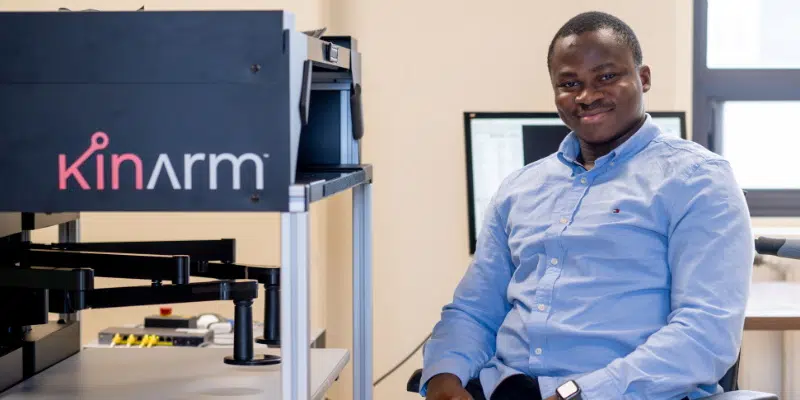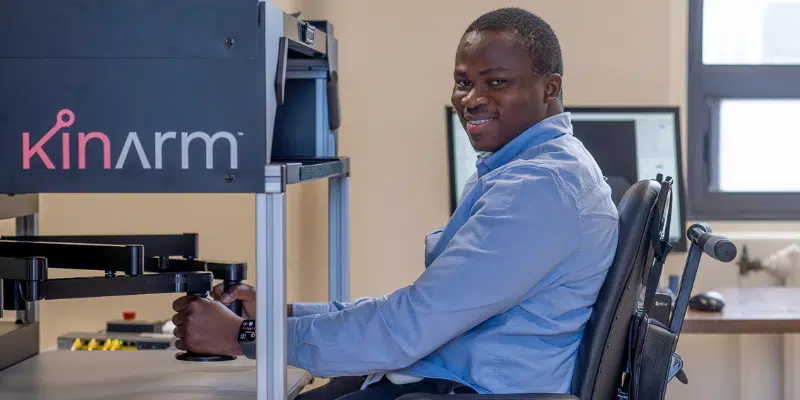Kinesiological Instrument for Normal and Altered Reaching Movements
(KINARM) is a robotics research tool designed to make quantitative
neurological assessments of sensorimotor, proprioception,
and cognitive brain function. It consists of a wheelchair and upper
extremity exoskeleton that the subject is fitted to based on their body
specifications. The KINARM allows the researcher to assess coordination
of limbs at multiple joints while also precisely measuring the
joint-specific force applied by the subject as they perform individual
tasks. The precision of the instrument removes the subjectivity that is
currently inherent in most physiotherapy assessments of neurological
status (e.g. muscle tone, spasticity, proprioception, etc.)
MUN Grad Student Develops New Stroke Recovery System

Submitted photo
A Memorial University grad student is hoping to make a difference in the lives of stroke patients with his new Kinarm system.
Michael Babalola of Lagos in Nigeria, says he was motivated to make the recovery process for stroke patients better and faster after watching his own grandmother recover from a stroke.
Babalola’s research uses robotics to customize patient recovery and help with their therapy. The Kinarm system uses a hybrid of virtual reality and robotics to provide clinicians with the information they need to help patients recovering from stroke.

The Kinarm helps to replace typical “long” and “tiring” rehab exercises with activities that patients report are actually “fun.”
Babalola says he’s thrilled with the results and has no doubt his grandmother would be proud.
He says his desire is to touch lives and leave people smiling. He believes his grandmother is “looking down from heaven” and is very glad.
No comments:
Post a Comment